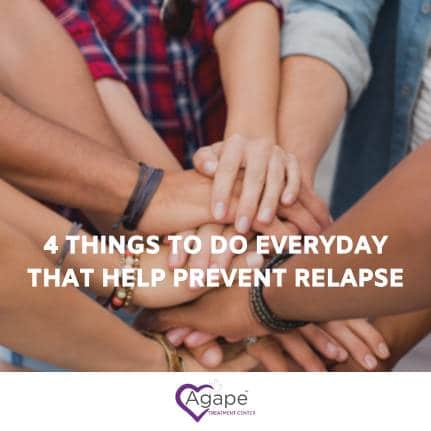
Table of Contents
ToggleTip #1: Stay Proactive About Your Recovery
Staying involved in the recovery process is extremely important. Substance use disorder is a chronic condition, which means that it requires long-term treatment. As someone is sober for longer, they start feeling better and sometimes may feel as if they do not need to do anything to maintain their sobriety. This is dangerous, as it often leads to relapse. Making sure that you stay involved in the daily recovery process is key.
Talk To People In Your Sober Support Network
Making sure you stay in contact with people in your sober support group helps prevent relapse. Staying connected is as simple as sending someone a text to check-in. Calling or texting your sponsor daily is also a good habit to have. Knowing that there are other people to help hold you accountable for your sobriety will help to reduce the risk of relapse.[1]
Go To Meetings
12-Step meetings such as Narcotics Anonymous and Alcoholics Anonymous are great places to help maintain sobriety. These abstinence-based fellowships provide additional support and a place to share what is going on with your sobriety. If your treatment center has long-term support, that is also a great tool. This additional support will make it less likely for someone to pick up drugs or alcohol again.
Tip #2: Recognize What Your Triggers Are
Triggers for relapse are unique to each individual. They are usually peoples, places, or things that remind someone of past drug and alcohol use. These situations commonly induce cravings. Working closely with a therapist to help you identify what your triggers are is a great starting point. The most common triggers that incite a relapse are:
- Guilt and shame
- Depression and anxiety
- Boredom
- Fatigue
- Stress
- Feeling sick
- Being near or at a place where you used to use drugs or alcohol
- Seeing, smelling, or hearing something that reminds you of past drug and alcohol use
- A major life change
- Pressure from others
Once you recognize your triggers, you can develop coping mechanisms to deal with them. Sometimes, you may want to avoid these situations entirely, especially in early recovery.
Tip #3: Take Care of Yourself Physically And Mentally
People who take care of their mental health are less likely to relapse. Keeping yourself healthy both mentally and physically will improve your overall mood. It is important to eat a balanced diet and exercise regularly. In addition, getting 7-8 hours of sleep every night is also critical for staying healthy. Exercise, a healthy diet, and regular sleep all reduce some of the common triggers, such as stress and fatigue, as well as improve overall mood.[2]
Having good mental health is also an essential component of maintaining sobriety. Many people suffering from substance use disorder also have co-occurring conditions such as depression and anxiety. Going to therapy, talking to other people, and in some cases, taking medication are all great ways to keep your mental health stable. Staying in a good mood greatly reduces the risk of relapse.
Tip #4: Find Something You Are Passionate About
While in active addiction, many people find themselves consumed by getting and using drugs and alcohol. This leaves very little time for fulfilling life activities. On the other hand, many newly sober individuals have difficulty filling up all this free time, and boredom can trigger a relapse.
Sobriety leaves you free to start pursuing something that you truly care about – whether it’s a hobby you always wanted to try or starting a new career. Now is the time to explore different activities. Some people may decide they want to go back to school, while others may decide to take up golf finally. Participating in things that you find meaningful increases happiness and overall life satisfaction. This greatly decreases any cravings for drugs and alcohol and helps to prevent a relapse from ever starting.
Getting Help
The first step you must take on your recovery journey is asking for help. Agape Treatment Center, located in sunny Fort Lauderdale, Florida, has a staff ready to start you out on that journey. Our therapists will work closely with you to tailor a relapse prevention plan that will fit your unique needs and set you up for success. Contact us today if you or a loved one is ready to learn how to get sober and prevent relapse.






